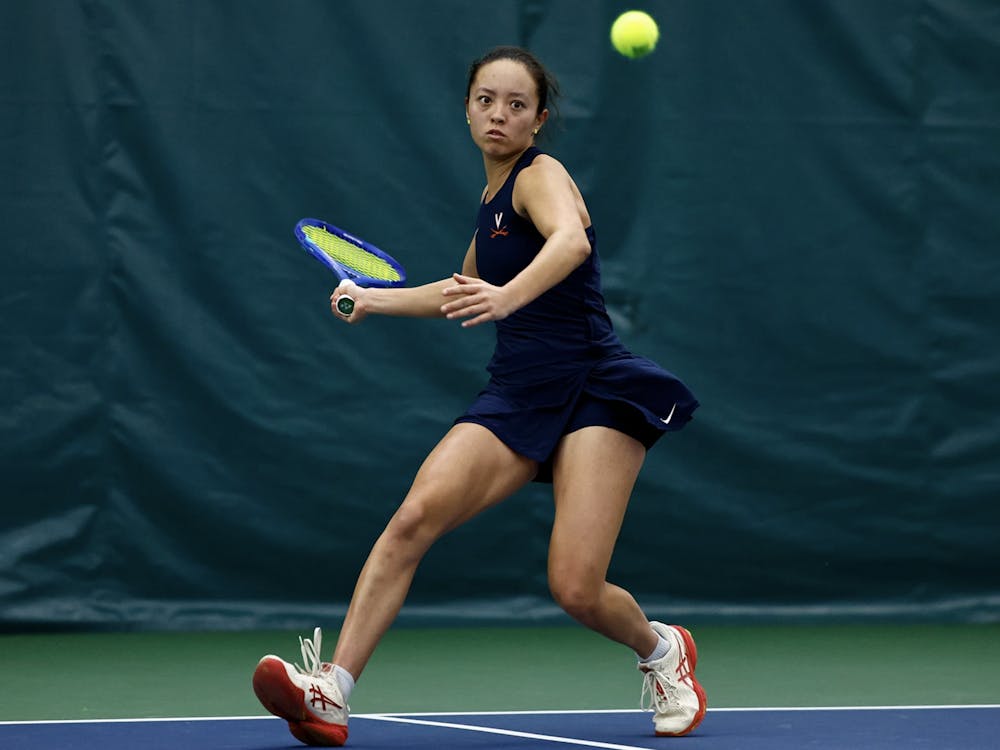In 2002, Herm Edwards, then head coach of the New York Jets, uttered what has since become one of the most famous sayings among sport fans and talking heads alike: "You play to win the game." Edwards' comment may seem simplistic and obvious at first glance. After all, who would play a game to lose? But during the many years I've pondered the quote, Edwards' words have taken on new meaning - one which has shaped my outlook on sports and one which has particular relevance in light of last Saturday's Commonwealth Cup debacle between Virginia and Virginia Tech.
In life, very few things are black and white. There are frustratingly few times when there is a clear-cut right choice and an equally defined wrong choice. Every day presents new situations in which we must make choices which will yield both positive and negative outcomes - be it at school, at work or at home. There's no definitive end goal in life, one that you can shoot for, and so long as you reach it, have your means entirely justified. Is the meaning of life to become wealthy? And if so, is robbing banks an acceptable mean to the end? This may not be the best example - I'm a sportswriter, not a philosopher mind you - but hopefully you get my point.
Yet sports do not always mirror life. In sports, there is a definitive goal which is of paramount importance above all else: to win. When it comes time to decide who makes the playoffs, nobody looks at how you won the games. Champions are decided by who wins the games, regardless of how they win them - well, except in the BCS, but that's another argument entirely. A win is a win is a win. No matter how you draw it up, if you can walk off the field scoring more points than the other team, then it doesn't matter how you do it. It all goes down in the same win column in the standings.
It's the very same argument which surrounds Tim Tebow in Denver and is currently captivating the nation. Can Tebow be an NFL quarterback? Some say no, that his unconventional throwing style and his inaccuracy will prevent him from lasting in the league. Others, meanwhile, point to his 5-1 career record as a starter and say it doesn't matter how he's doing it; he's winning, and as long as he can win, he should be a starter in the league.
Similarly, a loss is a loss. Whether it's by two points or by 50, it doesn't matter in a sport governed by wins and losses and not point differential. Following this logic, you can understand my frustration at how Saturday's game ended. With the Cavaliers trailing 38-0 and a shade fewer than six minutes remaining on the clock, Virginia faced a fourth down from inside its own 20 yard-line. Although I'm probably in the minority, I was dismayed to see punter Jimmy Howell emerge from the sideline and trot onto the field. Sure, defeat looked inevitable, but as the old adage says, "It ain't over 'til the fat lady sings."
If you're coach Mike London, don't you owe it to your players and your fans to always try and win regardless of how daunting the challenge in front of you looks? Punting at that point in the game is conceding defeat. You need five scores in six minutes; you don't earn points by punting. Regardless of where you are on the field, if you really are trying to win the game, you need to be going for it. If fans are in the stands, hoping against hope that somehow Virginia can get a touchdown, onside kick recover and four more touchdowns to pull out the win, shouldn't the players be hoping for the same?
I don't know what was going on inside London's head, and I'm not going to go all Gregg Easterbrook Tuesday Morning Quarterback and pretend I know. I don't know whether or not London was trying to prevent his players from seeing the Hokies put up 40, trying to save some face for the bowl inviters or simply trying to keep a 50-0 beatdown from appearing on his resume when he's applying to coach at some big name school. But regardless, I believe he made the wrong decision. This problem is in no way endemic to the Virginia coach, but to see the man who I hold in such high esteem fall victim to its trap is disheartening to say the least.
Virginia was never in the hunt for a BCS National Championship; it was never trying to keep a respectable point differential for the computer. Whether it lost by one touchdown or five Saturday, its bowl game placement wasn't going to change tremendously. What's the worst that could have happened? So you lose 45-0 instead of 38-0. Is that really that big a deal? If the argument was to defend the psyches of the Cavalier players, then I think Virginia would do well to have a new group of players take the field next season, one which is willing to do anything it can to win, regardless of the situation.
When I hear the words "you play to win the game," to me it means that no matter the situation, no matter the challenge, no matter the opponent, everyone must be striving for that ultimate goal and nothing else: to win. Because when it comes down to it, if you're not playing to win, then what are you playing for?






